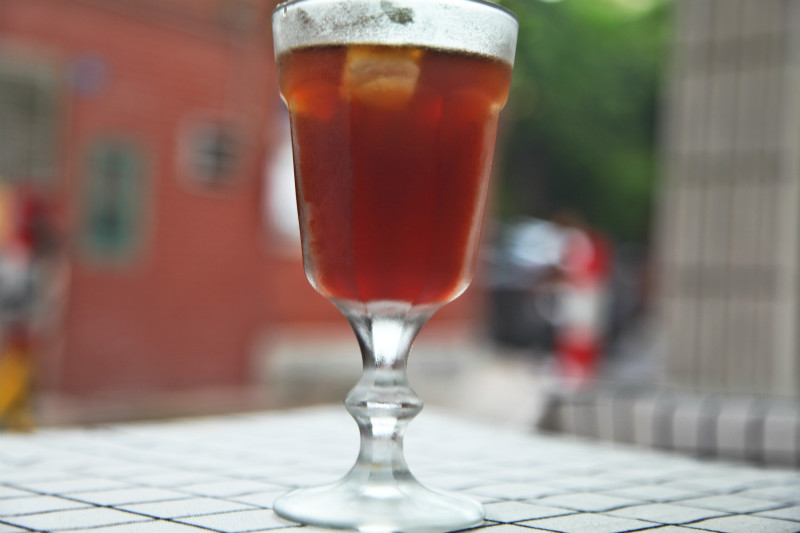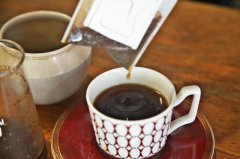Ethiopian Coffee Brand Harar Coffee Features What to Buy Coffee in Ethiopia

Professional coffee knowledge exchange more coffee bean information please follow the coffee workshop (Wechat official account cafe_style)
It is said that in the sixth century AD, there was a shepherd in Ethiopia. One day he found his sheep jumping around with great excitement. After careful observation, it was found that the sheep had this reaction because they ate a kind of red fruit. He tried to share the fruit among the people around him. As a result, everyone felt refreshed and refreshed after eating it. This kind of fruit is coffee fruit.
Slowly, people chew coffee and spices together, and hunters will wrap the bacon in coffee as the best dry food before going out, because it can both eat and boost their spirits. People give this fruit, Kafa, the name of the place where the devil beans were found.
Later, Kafa slowly tried to drink it with boiled water. This atmosphere began in Ethiopia and went on an expedition to Arabia, and soon captivated sentient beings and became a popular drink all over the world-it was coffee.
To this day, when it comes to coffee, Ethiopians always proudly say, "Coffee is a gift we give to the world."
Ethiopian coffee is mostly produced in the plateau above 2000 meters above sea level. Ethiopian coffee brands are produced in Gima, Gamby, Yeerqifa, Sidamo and Harald. Among them, the Montenegro region of Harald is still the only place in the world with wild coffee, which is auctioned in London every year at an astonishingly high price.
Harald, located in eastern Ethiopia, is an ancient city with a long history and one of the four holy cities of Islam, where coffee beans are usually divided into three types: long bean Harar, short bean Harald and single bean Harald. Among them, long bean Harar is the most popular and of the best quality. this kind of coffee is full-bodied, full-bodied, sour and full-bodied.
Ethiopian coffee brand-Harald Coffee is called "Wild Rose" and belongs to "pure handmade" coffee. Lahore coffee has a mellow taste, moderate or mild acidity, and most importantly, it has the lowest caffeine content, only about 1.13%. Harald coffee is also a very special kind of coffee, its taste is very aggressive, ready to defeat your taste buds, it is hard to forget. The earthy smell of Harald coffee is unique to dry coffee and is why some people love it while others reject it. Due to the different methods of processing coffee after picking, the taste of Ethiopian Harald coffee is also different, some are full-bodied, low-bodied and have a strong alcoholic flavor, while others are fragrant, lubricated and accompanied by light fruit aromas.
Although Ethiopia is the first country in the world to grow coffee and maintain the oldest coffee culture, it is mostly grown by small families and maintains very traditional and ancient coffee cultivation techniques and methods, so pesticides and other chemical fertilizers will never be used. Therefore, Ethiopian coffee and Yemeni mocha coffee are the best choice for those who advocate nature.
Ethiopians make no secret of their pride in their own coffee. They think that the coffee beans produced by Ethiopia are the best in the world, while the coffee they brew at home is the best coffee in the world. As for things like Starbucks, they would say contemptuously, "is that also called coffee?" . Coffee is an important part of Ethiopian life, whether in the most remote Danakir Desert, on the shores of Lake Awasa in the depths of the Rift Valley, in noisy cities or in the natural and quiet countryside. Coffee is everywhere!
When we travel in Ethiopia, we drink several cups of coffee almost every day, one when we are thirsty, one when we are sleepy, and one more when we are free. Fortunately, their coffee cups are very mini, and the containers they use are not large-capacity paper cups like Starbucks. In fact, their glasses are almost the size of a white wine glass with a scale or two. However, they treat this small cup of coffee with the highest respect: they have a complete set of traditional coffee etiquette! To this end, we have written a special blog article.
The street lamps in the ancient city of Harald have been shaped like coffee pots.
When visiting the old city of Harald, we first went to the famous Ali Bal cafe Cafe (pictured above), which looks extremely low-key.
The interior is also very simple.
In the picture, the little brother is making coffee for us.
In the picture, there is Mark Yatto on the left and black coffee on the right. Having been in Ethiopia for a long time, we are also used to drinking black coffee with sugar, which has a unique coffee flavor.
After tasting the famous Harald coffee, it goes without saying that it tastes good, but the most amazing thing is the price: in this world-famous cafe, the price of each cup of coffee is only 4 bill, less than 2 yuan!
Then go all the way down to find the location of the famous coffee Nure Roasted Coffee factory.
At a recent glance, the so-called factory is actually a small workshop in which there is a roaster that is used to dry fresh green coffee beans, which are then put into a roller to crush into coffee powder, and then can be boiled and drunk.
Of course, the fastidious Ethiopians would never buy this powder. They had to bake, grind and cook it themselves.
Besides us, several foreigners from the factory came to admire us. It is really admirable that such a famous coffee has not expanded its production, advertised, decorated or raised its price.
Hey, this factory is really too shabby, boss, are you going to play Titanic?
We bought two kilos of coffee powder and spent 300 bill, which is estimated to be the price for tourists. Because the waiter at our hotel told us that the price of this kind of coffee is between 90 and 120 bill per kilogram.
When I took a picture with the workers at parting, we both looked like guys working here.
Then boarded the bus and returned to Dre Dawa. I met a 23-year-old young man named Serrani in the car. He graduated from college last year and now teaches in Somaliland. Ask him why he doesn't work in Ethiopia. He said that it is difficult to find a job in Ethiopian college students, and even if he becomes a civil servant, the salary is 1500-2000 bill / month. He teaches in Somaliland and earns the equivalent of 6000 bills a month, as well as benefits such as free housing.
After the car arrived in Dre Dawa, Serratti volunteered to lead us to a hair salon that specializes in traditional hairstyles. The village woman bought a wig at the market for 25 Bill and another 30 Bill with a full African pigtail.
Beside the point, the little girl who does her hair for the village woman is really pleasing to the eye.
African pigtails are braided all over their heads, so they can be handsome when they return home.
As a token of our thanks, we treated Serratti to lunch. During the meal, the waiter brought a bottle of mineral water to Serra, and Serrahty asked someone to change the large bottle directly. Little boy, that's really impolite.
Important Notice :
前街咖啡 FrontStreet Coffee has moved to new addredd:
FrontStreet Coffee Address: 315,Donghua East Road,GuangZhou
Tel:020 38364473
- Prev

Ethiopian Coffee Story which brand of Ethiopian coffee beans is good
Professional coffee knowledge exchange more coffee bean information please follow the coffee workshop (Wechat official account cafe_style) Starbucks, which has been the king of the world in recent years. To become a well-known fashion brand, in order to arouse the recognition of more consumers with the power of consumption, Starbucks proposed a commitment to the producing area of caffeine (Commitment to Origins; referred to as CTO) in 2003, and promoted
- Next

What are the brands of black lion coffee in Ethiopian coffee shops? how's Ethiopia? is it good?
Professional coffee knowledge exchange more coffee bean information Please follow the coffee workshop (Wechat official account cafe_style) in Ethiopia, after eating the Angela, it would be very unauthentic not to have a cup of strong local coffee. After drinking Esther's coffee, it would be strange if you praised its benefits without meeting anyone. If you don't know that Essex is the hometown of coffee
Related
- Detailed explanation of Jadeite planting Land in Panamanian Jadeite Manor introduction to the grading system of Jadeite competitive bidding, Red bid, Green bid and Rose Summer
- Story of Coffee planting in Brenka region of Costa Rica Stonehenge Manor anaerobic heavy honey treatment of flavor mouth
- What's on the barrel of Blue Mountain Coffee beans?
- Can American coffee also pull flowers? How to use hot American style to pull out a good-looking pattern?
- Can you make a cold extract with coffee beans? What is the right proportion for cold-extracted coffee formula?
- Indonesian PWN Gold Mandrine Coffee Origin Features Flavor How to Chong? Mandolin coffee is American.
- A brief introduction to the flavor characteristics of Brazilian yellow bourbon coffee beans
- What is the effect of different water quality on the flavor of cold-extracted coffee? What kind of water is best for brewing coffee?
- Why do you think of Rose Summer whenever you mention Panamanian coffee?
- Introduction to the characteristics of authentic blue mountain coffee bean producing areas? What is the CIB Coffee Authority in Jamaica?

